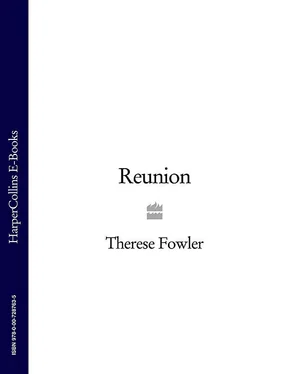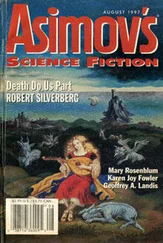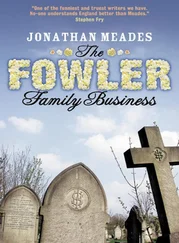Blue would have preferred not to witness Marcy and Stephen’s bed-head coziness. But she smiled as though she found them adorable. “Morning. Looks like good weather for travel.”
“Do they have coffee ready?” Stephen asked, stroking one arm of his seat with his free hand. “Nice leather. I’m desperate for some caffeine.”
Marcy was nodding in agreement. “Vanilla-double-espresso-whipped, now that would be fab-u-lous,” she said. She rubbed her face and pulled back her hair. “But, holy Christ, it would be so much easier to just pop a pill.”
Blue flagged the flight attendant who waited in the galley pretending not to stare. “Easier,” Blue agreed, “but not as tasty.”
“Lower calorie, though,” Marcy sighed. “And fast-acting, which I could use. Peter called me at five-fifteen, insisting I log on to YouTube.”
“You—?” Blue started, then she knew. “The bit with Stacey and me, the tears, right?”
Marcy nodded. “It’s viral. You know how it goes. Peter sounded like he could use a tranquilizer.”
“Vultures,” Blue muttered.
The attendant came over and Blue requested coffee while Stephen stretched out his legs and crossed them at the ankle. He said, “Speaking of pills, last night Marcy was telling me all about the good old days.”
Blue shot Marcy a look of disapproval.
“We were doing tequila teasers,” Marcy said, her half-smile an apology. “A little practice, you know, for Duval Street. I told Stephen how we roomed together in our little house, and maybe got a bit wild a time or two. Nothing serious,” she said. Blue caught her look of assurance and relaxed a little.
“Oh, well, that’s true. We did have a wild time or two.” Or fifty. If she could recall those early months’ adventures she might be able to count them. “You know how kids are when they first leave home.” Naïve. Stubborn. Self-destructive—those were Blue’s personal adjectives. Not that she was about to say so, and Marcy had better not, either.
Stephen, apparently, was chatty in the morning even without the benefit of caffeine. He asked Blue, “So why did you change your name?”
“Do you know what my mother named me?”
“Yeah, Harmony Blue … Kucharski?”
“There you have it,” she said.
It had been years since anyone aside from her mother had brought up the name change, a change made legal so long ago that neither the media nor the public thought to question it. Her given name was not so awful, despite how she’d felt about it when she had to explain it to yet another teacher, principal, classmate. Back then, she’d been embarrassed to admit she’d gotten the name because her mother liked the anemone, harmony blue . Later, during what she and Marcy now referred to as “the recovery period” when she’d set her sights on working at WLVC, they’d agreed it just wasn’t a name for television.
Stephen said, “It’s cool, isn’t it? You’re Harmony and your sister’s Melody. Harmony and Melody. You should’ve been singers, or songwriters.”
“Now why didn’t I ever think of that?”
“Marcy says your mother is a trip.”
“Marcy ought to know.” She took most of Nancy Kucharski’s calls. The two women were as close as blood relatives. Closer, probably: they didn’t share any baggage.
Marcy said, “It’s a flower. Blue’s named after a flower.”
A sturdy, pale blue-to-violet flower that had grown in the shade garden of her grandmother Kate Kucharski’s postage-stamp yard. That was the way Kate had described it to Blue, postage-stamp. Near that garden, Blue’s mother, the adolescent Nancy Kucharski, daydreamed away her summer evenings—until she started meeting boys who had cars. And, at some point, a particular boy whose name began with L . Taking advantage of her mother’s overindulgent parenting style, young Nancy had launched her dating life at fifteen and, except for two pauses to gestate and deliver two daughters, had never stopped since.
The story Blue had liked to hear when she was young began not with teenage Nancy but with baby Harmony Blue, being delivered to the little house by a stork, Kate always said, which Blue had imagined as a white-feathered version of Big Bird. But the little house was too small; soon they moved to a bigger place, an apartment with three bedrooms. The stork brought Melody there.
In the evenings, when her mother was out and Melody was already asleep, Blue had urged her grandmother to tell her again about the home she’d been brought to as a newborn. When Grandma Kate described the yard of that house that way, postage-stamp , young Blue imagined a million little squares pasted down where grass would have been. A broad, level, gymnasium-sized spread of stamps, some of them as exotic as the ones that appeared on her mother’s airmail envelopes. The ones from “guys” who wrote from wherever the US Army had assigned them after something called a draft. Germany. The Philippines. Vietnam. Was one of those guys her father? Was the L from Cambodia the L tattooed on her mother’s hip? Did that explain the absence of a man in their home, when almost all the homes around them had mothers and fathers , not grandmothers?
“Don’t you worry about that father stuff,” her mother told her once, face close to the mirror while she darkened the mole on her right cheekbone, a mole matching the one that had just appeared on Blue’s five-year-old cheek. The L was covered that night by brown polyester bell-bottoms and a cheap gold-colored hip chain that draped low. Her mother rumpled her hair. “You two are my precious little gifts from God.”
She’d tried to believe that being a stork-delivered package straight from heaven made her superior to other children, children whose fifties-era ranch homes looked just like the one they moved into next, but whose families inside those homes did not. Those were common children. Normal children, who had normal families. What she knew, though, was that they were what she would never be, never have. What use in hoping otherwise? What use in puzzling over a black tattoo that was covered up almost all the time?
She’d made a valiant effort to be like her mother, like Mel. Nothing fazed them. Mel’s first tattoo, done when Mel was fourteen, was a wreath of words around her upper arm that read “Frankie Say Relax.” Blue had been as impressed with the act as with the sentiment. If Mel could be so bold, why couldn’t she? At the library, she paged through books with tattoo designs and slogans. She drew one on her ankle in permanent marker, a vine with heart-shaped leaves, then hid her work beneath her sock until the ink wore off. The truth of it was that when she was alone she sometimes still hummed, “When You Wish Upon a Star,” and waited for all things to right themselves, the way they surely would.
Voices from up near the cockpit told Blue that Peter and his wife had arrived. “Are we on schedule?” she heard him asking. She imagined him holding a stopwatch and waiting to tell the pilot, Go! If she was lucky he would stay up there; she had no desire to hear him fret aloud about tears and ratings and ridicule.
The flight attendant brought coffee in stoneware mugs, delivered from a cloth-draped tray. “What else can I bring you? We’ll be wheels up in about five minutes.”
“I don’t know,” Marcy said. “Blue, do you want anything?”
“No.” Or nothing that could be stocked on board, at any rate.
Janelle and Peter joined them in the cabin. “Did Marcy tell you?” Peter said. His round face was flushed and he was rubbing the top of his balding head, his habit when stressed. “YouTube, Perez —we cut it from our time-delayed broadcasts but it doesn’t matter, it’s everywhere. We’re telling everyone that your dog died yesterday morning, okay?”
Читать дальше












